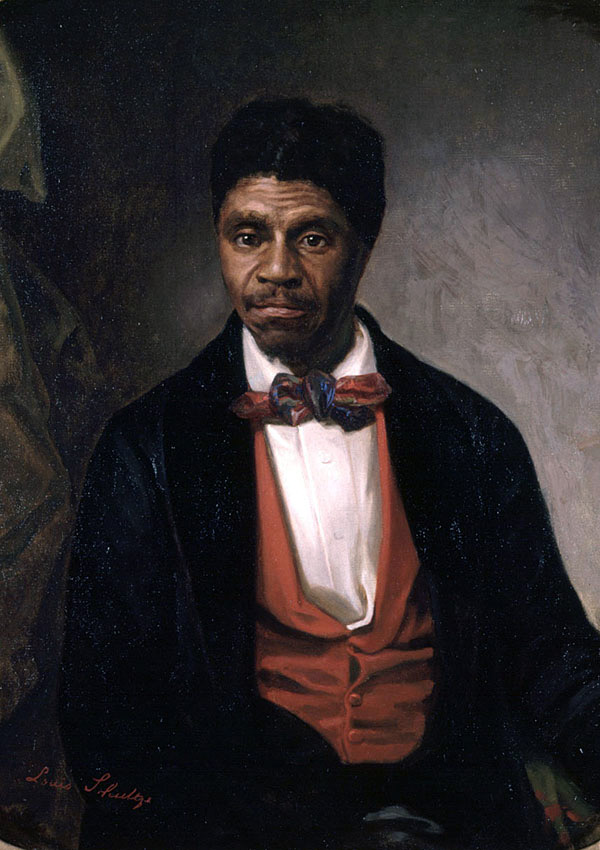
In 1846, a slave named Dred Scott attempted to purchase his freedom from his owner. Dred Scott sued for his freedom that same year. After two separate trials, his case was brought before the U.S. Supreme Court for review in 1857. The U.S. Supreme Court ruled that Dred Scott could not sue for his rights because he was a slave; he was considered property, not a citizen, therefore he was not granted the same Constitutional rights as American citizens.
This limitation of Constitutional rights to African Americans angered many Republicans of the North.
In the March 9th, 1857, issue of Evening Journal, the Republican author states,
"The three hundred and forty-seven thousand five hundred and twenty-five Slaveholders in the Republic, accomplished day before yesterday a great success -- as shallow men estimate success. They converted the Supreme Court of Law and Equity of the United States of America into a propagandist of human Slavery. Fatal day for a judiciary made reputable throughout the world, and reliable to all in this nation, by the learning and the virtues of Jay, Rutledge, Ellsworth, Marshall and Story!...All who love Republican institutions and who hate Aristocracy, compact yourselves together for the struggle which threatens your liberty and will test your manhood!" Many Republicans in the Union viewed the ruling in the Dred Scott case as a disgrace to the ideals of freedom that America was founded upon. Those who recognized the hypocrisy embedded within this case and stood in retaliation could be considered true Americans.

This case inspired many individuals, as well as the entire Union, to more aggressively approach the goal of abolishment.
In 1861, shortly after the Dred Scott case ruling was delivered, the the Union and the Confederacy engaged in what would become known as the American Civil War. Shortly after the Union defeated the Confederacy, the 13th amendment was ratified, abolishing slavery in the U.S., with the exception of incarceration of individuals for criminal offenses. 3 years after the ratification of the 13th amendment, congress ratified the 14th amendment, establishing former slaves and individuals of African descent as citizens and granting them Constitutional rights. The installment of these two amendments would set in motion the beginnings of the civil rights movement in America that would eventually award all U.S. citizens with equal civil liberties.
 In 1846, a slave named Dred Scott attempted to purchase his freedom from his owner. Dred Scott sued for his freedom that same year. After two separate trials, his case was brought before the U.S. Supreme Court for review in 1857. The U.S. Supreme Court ruled that Dred Scott could not sue for his rights because he was a slave; he was considered property, not a citizen, therefore he was not granted the same Constitutional rights as American citizens.
In 1846, a slave named Dred Scott attempted to purchase his freedom from his owner. Dred Scott sued for his freedom that same year. After two separate trials, his case was brought before the U.S. Supreme Court for review in 1857. The U.S. Supreme Court ruled that Dred Scott could not sue for his rights because he was a slave; he was considered property, not a citizen, therefore he was not granted the same Constitutional rights as American citizens. This case inspired many individuals, as well as the entire Union, to more aggressively approach the goal of abolishment.
This case inspired many individuals, as well as the entire Union, to more aggressively approach the goal of abolishment. 
No comments:
Post a Comment